
Dont Look Back is a 1967 American documentary film directed by D. A. Pennebaker that covers Bob Dylan's 1965 concert tour in England.
High School is a 1968 American documentary film by Frederick Wiseman that shows a typical day for students and faculty at a Pennsylvanian high school during the late 1960s. It is one of the first direct cinema documentaries. It was shot over five weeks between March and April 1968 at Northeast High School in Philadelphia, Pennsylvania. The film was not shown in Philadelphia at the time of its release, because of Wiseman's concerns over what he called "vague talk" of a lawsuit.

The House in the Middle is the title of two American documentary film shorts, respectively from 1953 and 1954, which showed the effects of a nuclear bomb test on a set of three small houses.

Jam Session is a 1942 short film, directed by Josef Berne, which shows Duke Ellington and his orchestra performing "C Jam Blues".

Jazz on a Summer's Day is a 1959 concert film set at the 1958 Newport Jazz Festival in Newport, Rhode Island. The film was directed by commercial and fashion photographer Bert Stern and Aram Avakian, who also edited the film. The Columbia Records jazz producer, George Avakian, was the musical director of the film.
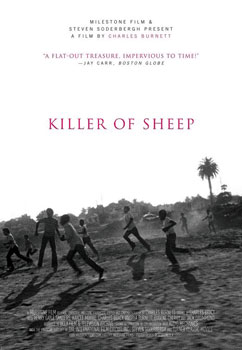
Killer of Sheep is a 1978 American drama film edited, filmed, written, produced, and directed by Charles Burnett. Shot primarily in 1972 and 1973, it was originally submitted by Burnett to the UCLA School of Film in 1977 as his Master of Fine Arts thesis. It features Henry G. Sanders, Kaycee Moore, and Charles Bracy, among others, in acting roles.
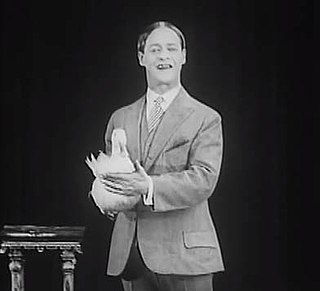
Theodore Case Sound Test: Gus Visser and his Singing Duck, also known as Gus Visser and His Singing Duck, is a 1925 American short musical comedy film starring vaudeville performer Gus Visser. The short is an early sound film, directed by Theodore Case while perfecting his variable density sound-on-film process. Case began working on his sound film process at the Case Research Lab in Auburn, New York, in 1921.
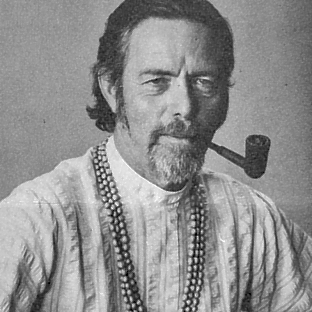
Alan Wilson Watts was an English writer, speaker, and self-styled "philosophical entertainer", known for interpreting and popularising Buddhist, Taoist, and Hindu philosophy for a Western audience.

Watts is a neighborhood in southern Los Angeles, California. It is located within the South Los Angeles region, bordering the cities of Lynwood, Huntington Park and South Gate to the east and southeast, respectively, and the unincorporated community of Willowbrook to the south.

John Eliot Sturges was an American film director. His films include Bad Day at Black Rock (1955), Gunfight at the O.K. Corral (1957), The Magnificent Seven (1960), The Great Escape (1963), and Ice Station Zebra (1968). In 2013, The Magnificent Seven and 2018, Bad Day at Black Rock were selected for preservation in the United States National Film Registry by the Library of Congress as being "culturally, historically, or aesthetically significant".
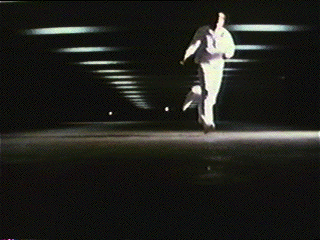
Electronic Labyrinth: THX 1138 4EB is a 1967 social science-fiction short film written and directed by George Lucas while he attended the University of Southern California's film school. Lucas reworked the short into the 1971 theatrical feature THX 1138.
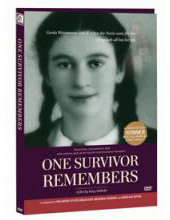
One Survivor Remembers is a 1995 documentary short film by Kary Antholis.
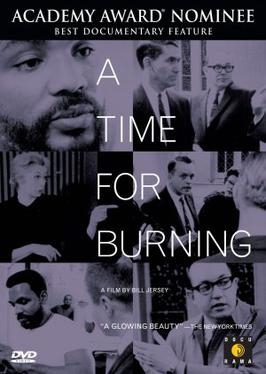
A Time for Burning is a 1966 American documentary film that explores the attempts of the minister of Augustana Lutheran Church in Omaha, Nebraska, to persuade his all-white congregation to reach out to "Negro" Lutherans in the city's north side. The film was directed by San Francisco filmmaker William C. Jersey and was nominated for Best Documentary Feature in the 1967 Academy Awards. The film was commissioned by the Lutheran Church in America.

The National Recording Registry is a list of sound recordings that "are culturally, historically, or aesthetically significant, and/or inform or reflect life in the United States." The registry was established by the National Recording Preservation Act of 2000, which created the National Recording Preservation Board, whose members are appointed by the Librarian of Congress. The recordings preserved in the United States National Recording Registry form a registry of recordings selected yearly by the National Recording Preservation Board for preservation in the Library of Congress.
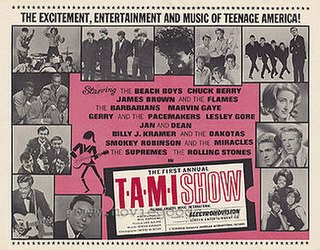
T.A.M.I. Show is a 1964 concert film released by American International Pictures. It includes performances by numerous popular rock and roll and R&B musicians from the United States and England. The concert was held at the Santa Monica Civic Auditorium on October 28 and 29, 1964. Free tickets were distributed to local high school students. The acronym "T.A.M.I." was used inconsistently in the show's publicity to mean both "Teenage Awards Music International" and "Teen Age Music International".
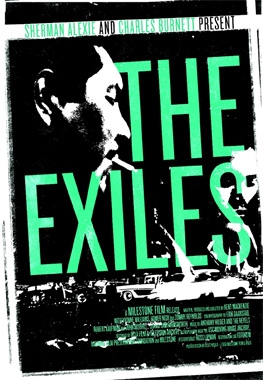
The Exiles (1961) is a film by Kent MacKenzie chronicling a day in the life of a group of 20-something Native Americans who left reservation life in the 1950s to live in the district of Bunker Hill, Los Angeles, California. Bunker Hill was then a blighted residential locality of decayed Victorian mansions, sometimes featured in the writings of Raymond Chandler, John Fante, and Charles Bukowski. The structure of the film is that of a narrative feature, the script pieced together from interviews with the documentary subjects. The film features Yvonne Williams, Homer Nish, and Tommy Reynolds.

The National Film Registry (NFR) is the United States National Film Preservation Board's (NFPB) collection of films selected for preservation, each selected for its historical, cultural, and aesthetic contributions since the NFPB's inception in 1988.

Under Western Stars is a 1938 American Western film directed by Joseph Kane and starring Roy Rogers, Smiley Burnette, Carol Hughes, and the Maple City Four. Written by Dorrell McGowan, Stuart E. McGowan, and Betty Burbridge, the film is about a populist singing cowboy who decides to run for Congress in order to seek federal assistance to help small ranchers regain their water rights during the Dust Bowl of the 1930s. His campaign comes into conflict with greedy water company executives.

Uncle Tom's Cabin is a 1914 American silent historical drama film directed by William Robert Daly using Vitagraph and starring Sam Lucas, Walter Hitchcock, and Hattie Delaro. It was based upon playwright George L. Aiken's theatrical adaptation of Harriet Beecher Stowe's 1852 novel Uncle Tom's Cabin. It was produced at Fort Lee, New Jersey by the newly founded World Film studio.
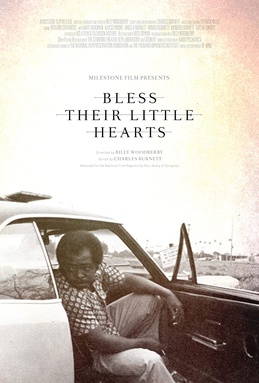
Bless Their Little Hearts is a 1984 American drama film produced and directed by Billy Woodberry and starring Nate Hardman. It was shot and written by Charles Burnett. The film had a limited theatrical release: it played for a week at the Royal in West Los Angeles and also at the Film Forum in New York.


















